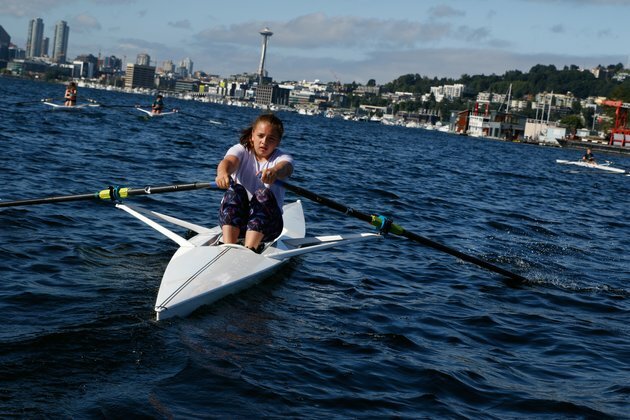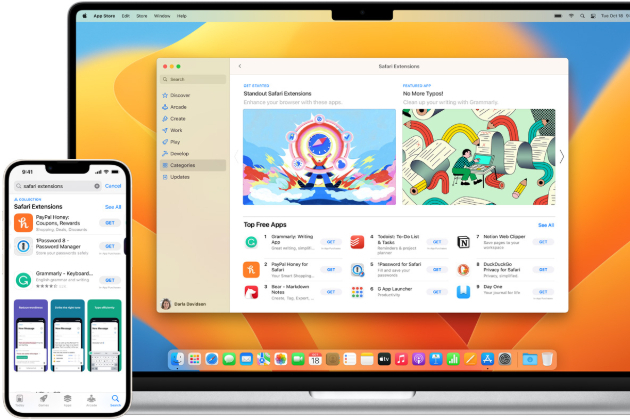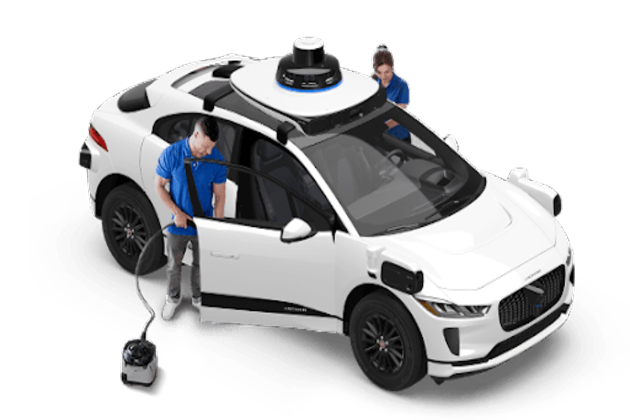Kids aren't getting enough exercise, even in sporty Seattle
The Conversation
14 Dec 2019, 00:55 GMT+10

People who live in and around Seattle are among the nation's most active. The region is an outdoor recreation haven for both locals and visitors who enjoy hiking, biking and kayaking.
I conduct research about coaching and youth sports. To see if the roughly 450,000 kids who live in the county which encompasses Seattle and its surrounding suburbs get enough exercise through play, sports and outdoor recreation, I teamed up with King County Parks and the Aspen Institute, a think tank.
Federal guidelines set by the Centers for Disease Control and Prevention call for all kids between 6 and 18 years old to be physically active for at least an hour every day. Anything from playing tag at recess to practicing basketball after school to riding a bike to a neighbor's house counts.
Organized sports, whether in or out of school, might be the main way you think kids get exercise. Taking part in these programs, whether it's a dance class or a swim team, gives kids a chance not only to be physically active but also to learn teamwork and grow more resilient. We found that about 80% of kids in King County have participated in sports programs.
Despite this, we found that only about a fifth of the county's youth get enough physical activity, which is lower than the national average of about a fourth. States with similarly low rates of physical activity include Alaska and Maine.
In King County, boys get more exercise than girls - which is similar to national trends. However, we found that, unlike national trends, boys and girls are participating in organized sports at the same rate.
Engaging immigrants
My research partners and I also found that young immigrants and the children of immigrants were the most likely to be getting too little exercise.
More than one in five of the county's residents were born outside the U.S. We found that only one in 10 of all children who don't speak English at home are spending at least an hour per day being active.
Just half of these immigrants, many of whose families speak Spanish, Chinese or Vietnamese as their first language, have ever participated in an organized sport, like tennis or soccer, compared with almost 90% of their peers whose families were born here.
Further, we learned that children being raised in immigrant families were less likely to play at parks near their homes.
We wanted to better understand what barriers are standing in the way of children and teens being more active. By conducting focus groups and interviews, we determined that the cost of joining teams and the challenges of shuttling children to practice and games are the biggest barriers to participation in everything from baseball to ballet both in and out of school.
Parent after parent expressed dismay at the expense. One parent told us the sports her family does are "whatever we can find that's free."
Many Seattle-area clubs and recreation programs, typically run by local governments, provide scholarships. But we also found that scholarships are not enough to topple barriers in the way of many families.
For young immigrant athletes, for example, families have trouble learning how to enroll their kids in these programs when websites and the requisite forms are in English only.
Opportunities for young people to join teams and take part in sports through other means can be quite different from what immigrants are familiar with. A number of immigrant families expressed frustration that more sport and recreation programs were not offered directly at schools, which they said would make it more likely for their children to participate.
"Here, it's very expensive to learn how to swim," a father told my colleague. "But all of my kids who went to school in South Africa, all of them learned how to swim and they are very good swimmers. It was made available to them at school and it was free."
In addition, many non-English speakers also told us that they don't feel welcome on teams.
We believe that one way to fix that problem would be for sports programs run by schools, the county and independent organizations alike to recruit and hire more coaches of color. Another would be ensuring that all coaches get training in diversity, equity and inclusion. None of the coaches in our coach survey reported being trained in these issues.
Not getting enough physical activity and losing out on the benefits of team sports doesn't just potentially harm the young people who are overly sedentary. It also takes a toll on college and professional sports teams, as well as the official teams representing the United States at the Olympics and competitions like the soccer World Cup because it limits the available talent pool.
Following the release of our research in September, public health officials, policymakers, educators, businesses, professional sports teams and youth sports programs created the King County Play Equity Coalition.
Guided by our findings, this coalition aims to make it easier for all kids in our region to join teams, play outside and stay active. The coalition will advocate for policies like longer recess and reduced fees for school sports, as well as help expand programs like green school yards and Soccer without Borders that give kids more places and possibilities for active play.
[ Like what you've read? Want more? Sign up for The Conversation's daily newsletter. ]
Author: Julie McCleery - Research Associate & Lecturer, Center for Leadership in Athletics, University of Washington 
 Share
Share
 Tweet
Tweet
 Share
Share
 Flip
Flip
 Email
Email
Watch latest videos
Subscribe and Follow
Get a daily dose of Beijing Bulletin news through our daily email, its complimentary and keeps you fully up to date with world and business news as well.
News RELEASES
Publish news of your business, community or sports group, personnel appointments, major event and more by submitting a news release to Beijing Bulletin.
More InformationTechnology
SectionApple likely to escape EU fine after browser changes
BRUSSELS, Belgium: Apple appears to have dodged a major regulatory setback in Europe, following recent changes to how users select...
Regulatory win in India paves way for Starlink's expansion
BENGALURU, India: A major regulatory breakthrough in India could mark a turning point for Starlink, Elon Musk's satellite internet...
China reassures Apple CEO Tim Cook amid geopolitical tensions
BEIJING, China: As global tech firms navigate rising geopolitical tensions, China has extended a warm signal to Apple, one of its most...
Kiev looking to further delay elections Ukrainian official
The country needs to amend legislation governing voting procedures and timelines, Ukrainian CEC Chair Oleg Didenko has claimed Ukraine...
Centre set to increase limit for auto settlement of PF withdrawal from Rs 1 lakh to Rs 5 lakh
By Shailesh Yadav New Delhi [India], March 31 (ANI): To expand the 'Ease of Living' of its 7.5 crore members, Employees Provident...
Leaks aside: What is Trumps endgame with the Houthis
The Trump administration is facing a diplomatic dilemma amid an escalating conflict with Iran The Trump administration's escalating...
Business
SectionGlobal automakers face disruption as US tariffs set to take effect
BERLIN/DETROIT: Automakers worldwide are bracing for the impact of sweeping new U.S. tariffs that could reshape global vehicle production...
Dollar Tree sells Family Dollar in $1 billion exit deal
CHARLOTTE, North Carolina: Dollar Tree is cutting ties with its struggling Family Dollar chain in a US$1 billion deal that marks the...
BYD aims to double overseas EV sales to 800,000 in 2025
SHANGHAI, China: As global demand for electric vehicles continues to rise, China's BYD is looking to double its overseas sales to over...
To meet US AI energy surge, Schneider Electric invests $700 million
ANDOVER, Massachusetts: As artificial intelligence drives up energy demand across the United States, Schneider Electric is making a...
Americans grow gloomy on finances as confidence declines further
WASHINGTON, D.C.: U.S. consumer confidence continued to drop in 2025, hitting its lowest level in 12 years as more Americans worry...
Waymo gears up for driverless expansion in Washington, D.C.
WASHINGTON, D.C.: Alphabet's self-driving division Waymo is preparing to expand its driverless ride-hailing footprint to the heart...













